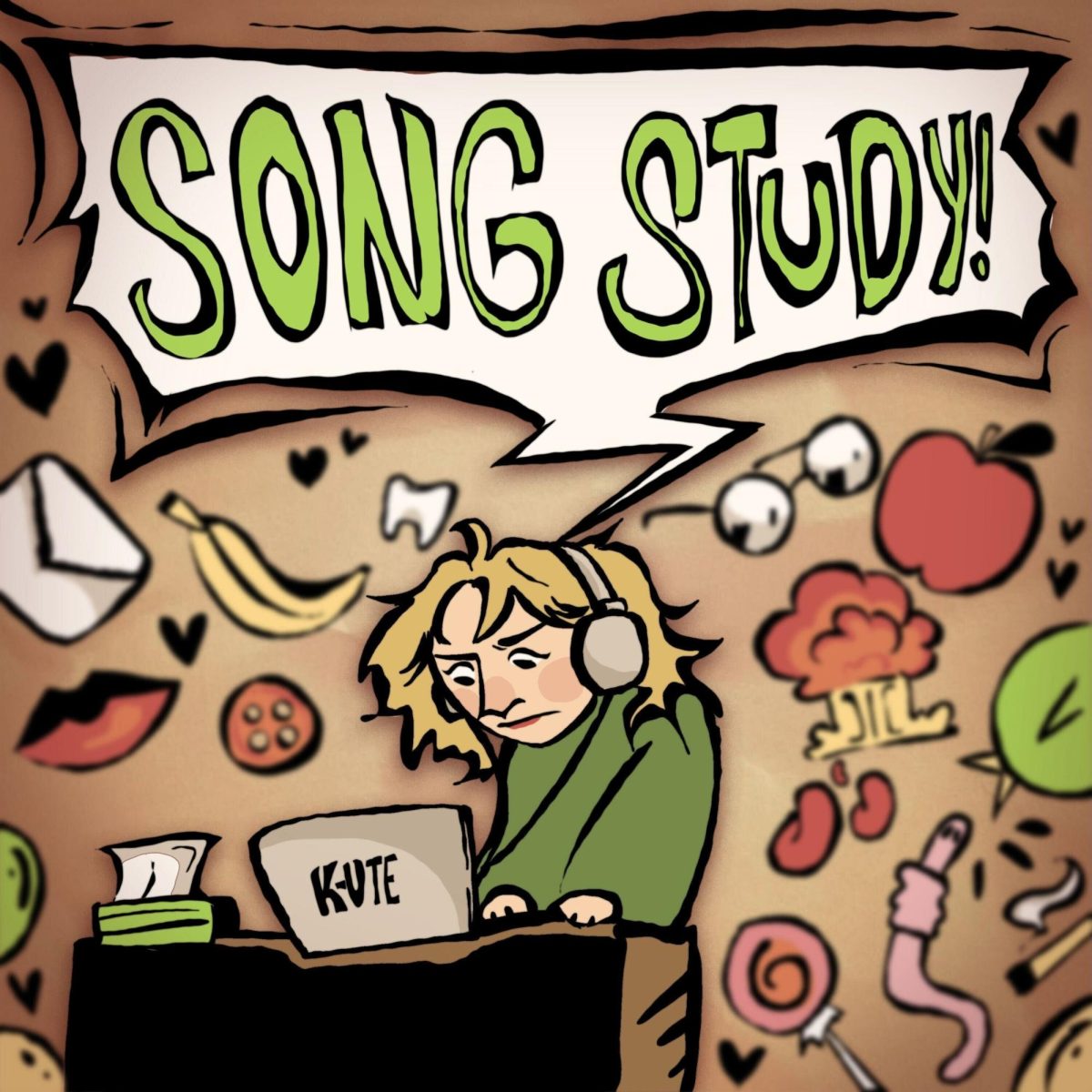*I will try to spare anybody reading this, the book that I could write about Elliott Smith and his songs. If this turns out any shorter than a novel, I will have practiced real restraint.*
As someone who has a tendency to fixate on the musical artists I love, I’m familiar with the feeling that finding a new favorite can bring and the excitement and obsession that follows.
When I was first listening to Elliott Smith’s music as a junior in high school, I had no idea the part his songs would play in my life in the years to come. I’ve spent hours listening to his music (12,181 minutes in 2024 according to Spotify) I’ve read books and articles, I’ve watched interviews and films about him and made many friends with a shared love of his songs. As I was trying to decide which song of Elliott’s to write about, my mind kept leading back to “Between the Bars”, not because it’s my favorite (I could never choose), but because I see it as a staple and turning point in his history as an artist and style as a songwriter.
“Between the Bars” appears on the 1997 album Either/Or, and when looking at albums released during his lifetime, Either/Or falls right in the middle of his chronological discography. The album is a favorite for fans new and old alike. Along with other songs on the album like “Angeles” and “Say Yes,” “Between the Bars” sits in one of the top three spots for Elliott’s most listened-to songs on Spotify.
The album’s title is somewhat suspected to be inspired by the book Either/Or written by Danish philosopher Sorren Kierrkegard. Most of his lyrics don’t come right out in favor of or against the themes in the book but rather challenge and question the philosophical ideas it presents. Elliott studied philosophy in college along with political science, so this idea doesn’t seem far-fetched. There’s also recorded reference in a show review from 1996 at one of Heatmiser’s last shows.
Journalist Kevin Stark quotes Elliott’s bandmate Sam Coomes as saying, “We’ve got Sorren Kierkegaard on guitar” referring to Elliott, to which he responded “This one’s called Fear and Trembling” another reference to a separate Kierkegaard title. This kind of quick wit is something you can find in many interviews and videos that feature Elliott. As a person he had a sharp tongue and was quietly charismatic. Elliott’s sense of humour is something rarely talked about, because his songs are so often morose and meditative, but I think it’s an integral part of who he was as an artist that endeared his audience to him.
Elliott has an ability to maintain and manage both emotional and intellectual concepts in his lyrics. Sometimes the deeper meaning and substance can sneak up on you because of Elliott’s conversational lyrical delivery. The first verse and chorus especially have a staying power in my mind. “Drink up baby, stay up all night/ With the things you could do/ You won’t but you might/ the potential you’ll be that you’ll never see/ the promises you’ll only make…People you’ve been before/ that you don’t want around anymore/ That push and shove and won’t bend to your will/ I’ll keep them still”
“Between the Bars” is a song that encapsulates the experience of wanting to evolve and reinvent, to shed past iterations of oneself. Of coming face to face with possibility and abandoning several outcomes in the pursuit of one future. I think this experience is something widely felt by people at or around the college age. In years prior, we’ve had opportunities to test and develop different versions of who we are, and we become equipped to choose who we want to be. That choice can come with a lot of fear, doubt and grief.
Elliott has a way of acknowledging all of these looming ideas and images in an honest way without losing sight of light at the end of the tunnel, no matter how far it seems. He had a way of touching on something very human that’s hard to put into words. He was able to say the unsayable, and there’s a comfort that comes from that as a listener. It makes you feel less alone.
More History
Although “Between the Bars” doesn’t have an official music video of its own, it’s featured in the Jem Cohen-directed Lucky Three: An Elliott Smith Portrait which includes live performances of three songs, “Between the Bars” being the first, shortly followed by a Cover of Big Star’s “Thirteen” and ending with “Angeles.” The songs are accompanied by scenes of urban life in dull frames with clips of Elliott playing intermittently. It is one of the most intimate depictions of Elliott I’ve seen, and the shots in between align perfectly with the feeling his music evokes.
“Between the Bars” has been covered by countless artists and fans, and today Elliott’s influence on music is overwhelmingly evident. Artists like Phoebe Bridgers, Frank Ocean, and Madonna all cite him as someone who inspires them, and the list doesn’t stop there. This is a testament to the universal and timeless nature of his songs and the strength and importance of his legacy.
“Between the Bars” also appears on Soundtracks for movies like Stuck in Love and Good Will Hunting. Good Will Hunting earned Elliott an Oscar nomination that led to a performance at the award ceremony in 1998, where he played “Miss Misery” which appears on an extended version of his album XO released in 1998. The Good Will Hunting Soundtrack and Oscars performance earned Elliott more and more commercial success, maybe more than he set out to receive.
Elliott was known as someone who was often quiet and reserved. In many interviews, it’s easy to tell he would rather be somewhere else. His songs did the talking for him. Elliott only became more and more popular after 1998 and his death in 2003 was devastating for the many people who came to love him and his music. Even after his death, the lasting power of his songs draws listeners to him. I think now, he’s more popular than ever. The lyric “the potential you’ll be, that you’ll never see” Almost serves as a self-fulfilled prophecy. Elliott didn’t live to see all the good that his music would do, but the fact that he was able to create a body of work so exceptional in the time that he had gives his songs an added rarity and inimitable quality.
More Elliott Smith Sources:
A Strange Parallel (documentary/ music video)
Heaven Adores You (documentary)
Sweetadeline.net (archive and community website)
My Favourite Elliott Smith Song (podcast)





